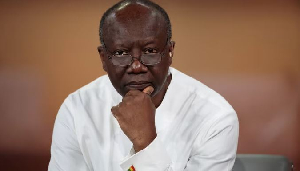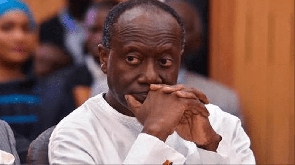Throttled by late President John Magufuli’s coronavirus denialism, Tanzanian doctors have expressed hope the arrival of a new leader will bring positive change to the country’s questionable handling of the pandemic.
Magufuli’s vice president and successor, Samia Suluhu Hassan, announced on March 17 that the 61-year-old had died from a pre-existing heart condition. But many suspect Magufuli, who had not been seen in public for weeks, passed away from COVID-19 complications.
In June last year, Magufuli declared his country had beaten the virus through prayer. Authorities had already stopped registering cases and deaths since May – at the time, Tanzania had 509 cases and 21 deaths – and warned of strong measures against those who allegedly spread “false information”.
Anyone who defied orders – including doctors – could be jailed under a law passed in 2018, which prohibits questioning the accuracy of official statistics.
Healthcare workers around the country have found themselves carefully treading the line between adhering to government narrative and staying loyal to their profession, in what a Tanzanian doctor in Geneva called “extremely difficult” circumstances.
“Since they weren’t allowed to admit the scale of the problem, many were still having to manage COVID-19 patients without actually saying it,” said the doctor, who worked for six years at a medical facility in Tanzania and is still in regular contact with doctors there.
“Basically, they would put down a vague provisional diagnosis … then using guidelines from WHO (World Health Organization) and neighbouring countries, treat patients.”
‘Personality problem’
Unlike neighbouring Uganda and Kenya, which imposed strict measures to combat the spread of the virus, in Tanzania masks and social distancing were never made mandatory.
Religious and political gatherings continued and businesses remained open, with tourists arriving in droves to Zanzibar – the semi-autonomous island off the coast.
Now, in what could be considered the first sign of transformation, the Ministry of Health last week quietly released on its website science-based coronavirus guidelines, including personal protective equipment (PPE) for healthcare workers and masks for patients.
According to Aikande Kwayu, an independent Tanzanian researcher and honorary fellow at the University of Wisconsin-Madison in the United States, reforms will take time, as any drastic change of course would be seen as disrespecting the former leader.
“It’s a bit early to say what direction president Suluhu Hassan will take, but the guidelines, which were released very discreetly, are a step in the right direction,” Kwayu said.
“The denial of COVID-19 in Tanzania was more of a personality problem of the late president Magufuli.”
In Kwayu’s opinion, the biggest sign of a new tack would be if Hassan replaced Minister of Health Dorothy Gwajima, a Magufuli loyalist who promoted steam inhalation and smoothies of ginger, garlic and lemon to ward off illnesses, while dismissing any chance the country would procure vaccines.
It is not yet clear whether the new president, who is the country’s first female leader and known for her tactile leadership style, will begin sharing case data and procure vaccines for Tanzania’s 58 million people through the COVAX initiative, a WHO-backed scheme designed to boost the distribution of vaccines to low- and lower-middle-income nations.
WHO chief Tedros Adhanom Ghebreyesus had previously called Tanzania’s situation “very concerning,” but has recently said he was ready to work with Hassan.
Hoping for more PPE
Kwayu said it was unclear whether the new president would mandate facial coverings, given she was seen without one at Magufuli’s state funeral last week.
However, Kwayu added she expected that public denialism of the disease would end and that testing might be decentralised, so that not only the national laboratory in Dar-es-Salaam could issue COVID-19 results.
Privately, doctors are also hoping for improved access to PPE. Healthcare workers were already short of the equipment before the pandemic and things only got worse since last year. The Medical Association of Tanzania has previously called on the government and public for PPE donations.
According to the Geneva-based doctor, healthcare practitioners have had to use the few masks and gloves they had for much longer than advisable, often contracting the virus on the job and transmitting it to those they were treating.
In one instance, someone working in a cancer ward told the doctor that colleagues excused themselves from duty after they fell ill from what they suspected to be coronavirus only to report back days later for fear of reprisals.
“They reported back to work while still weak and probably contagious,” the Geneva-based doctor said.
“Nobody really felt safe to openly challenge the status quo for fear of losing their jobs, so the ethical dilemma faced was daunting and frustrating for many.”
Even with the recent discovery of the most mutated variant of the coronavirus (a strain that has 10 more mutations than any other) in Tanzanian travellers arriving in Angola, a Tanzania-based doctor, who asked to remain anonymous over job-safety concerns, said the country is unlikely to see any drastic measures such as a nationwide lockdown given the economic realities.
“Africa has a major issue with poverty, of which lockdown creates far more dangerous effects,” said the doctor.
“African governments can not feed their people and many of us live on daily earnings … so [it] needs [its] own solution on how to deal with the pandemic.”
Although some feared it may be too late for authorities to repair the damage done to Tanzanians’ perception of the virus and the vaccines, Tundu Lissu, a leading opposition figure and Magufuli’s main opponent in last year’s presidential elections, said he believed everything rested on what the new president did
“If she changes course decisively on COVID-19, the rest of the country will follow suit,” he said.
“The denialism that defined Magufuli was becoming increasingly untenable even before his death. I think a change of course here would be very much welcome.”
Africa News of Friday, 2 April 2021
Source: aljazeera.com













